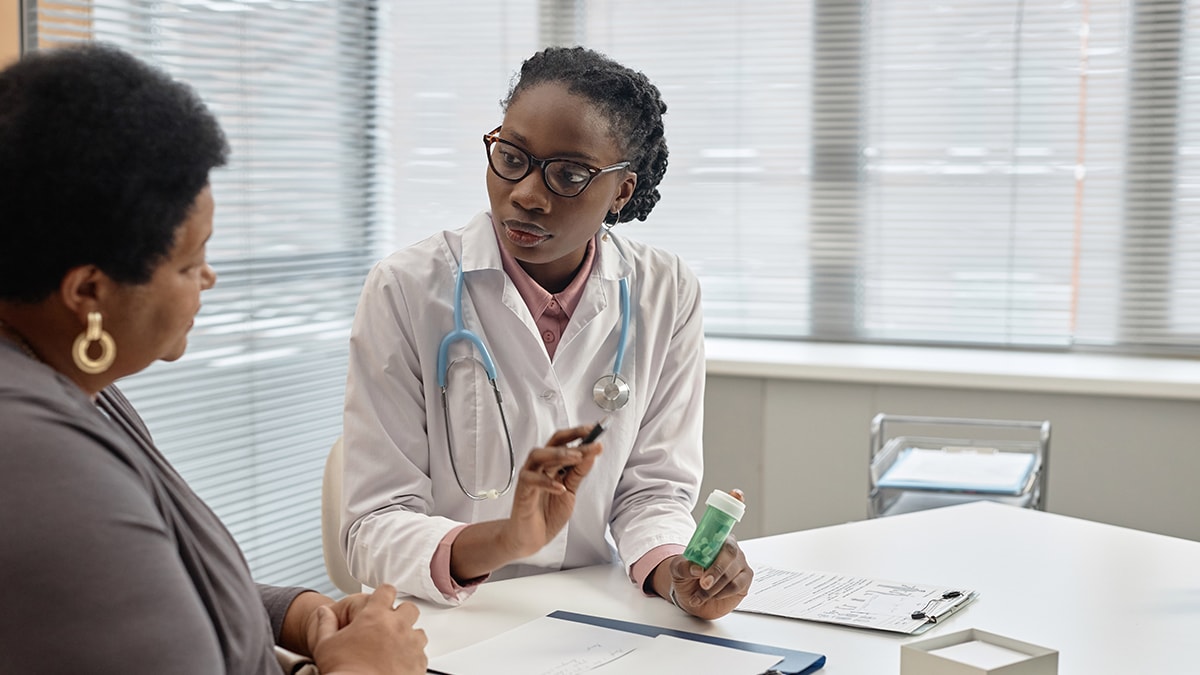Key points
- You can take medications to prevent malaria.
- Check to see if malaria spreads in the region or country you will be visiting before you travel.
- Take medications to prevent malaria as prescribed, including the period before travel and after you return from travel.
- Avoid mosquito bites even if you are taking medications to prevent malaria.
- If you experience symptoms of malaria, especially fever, while traveling or after returning, seek immediate medical attention.

Overview
This information is for travelers who live in the United States. Travelers from other countries should consult healthcare providers in their country for information on prevention recommendations and availability of antimalarial drugs. For more health recommendations for international travel, visit the CDC Yellow Book.
Every year, millions of U.S. residents travel to countries where malaria is present. About 2,000 cases of malaria are diagnosed in the U.S. in a typical year, mostly in returned travelers. You can prevent malaria when travelling in areas where malaria spreads by taking medications, called antimalarials, and preventing mosquito bites. There is no vaccine for malaria currently available in the U.S.
Risk factors
Malaria does not regularly occur in the in the U.S., so there is usually no exposure to the disease here. Travelers, especially to sub-Saharan Africa, regions of South America and Southeast Asia, have the greatest risk of getting malaria and potentially dying from their infection if not diagnosed promptly and appropriately treated. All travelers to countries where malaria is present may be at risk for infection.
U.S.-based travelers going to an area where malaria spreads, even if they had some level of immunity to malaria in the past, are still at risk for infection. It's important to note that acquired immunity to (protection from) malaria weakens the longer you are away from an area where malaria is widespread or endemic. If you have been away from your country of origin, even a short time, you can lose your protective immunity very quickly and should use the same preventative measures as all travelers (preventative medication, mosquito bite prevention, etc.)
Prevention steps
Before you travel
Before you travel, learn about the health risks and precautions for malaria and other diseases for your destination. Get a detailed itinerary of all the possible destinations or places you may visit during the trip. Check to see if malaria is present and spreads in these locations. CDC's Yellow Book chapter on Malaria Prevention by Country provides detailed information about the specific parts of countries where malaria spreads. It also provides additional information including the species of malaria that occur there, if there is resistance to any of the antimalarial drugs, and the specific medicines that CDC recommends for use for malaria prevention in each country or region.
Understand your risk
To understand your level of risk for getting malaria and if you need to take malaria prevention medications, consider the following
- Destination country or region
- Specific itinerary, including specific cities, types of accommodation (hotel with AC or open-air tents), season, and style of travel
- Pregnancy status, other medical conditions, and current medications you take
- Antimalarial drug resistance at your destination
Choose the most appropriate malaria prevention measures
You should discuss with a healthcare provider a detailed itinerary of where you are traveling, your activities, accommodations, and your medical history to understand your risk of malaria and if you need to take medication to prevent malaria.
- There are various options of medications available to prevent malaria and based on the country/countries, the urgency of the trip, and how often you prefer to take medication (daily vs. weekly).
- If your provider recommends malaria prevention medications, it is important to take them as prescribed, including the period before travel and after you return from travel.
- In some areas where only a few cases of malaria occur, CDC recommends preventing mosquito bites as the only way to prevent malaria.
- Be aware of counterfeit (fake) or substandard (not made according to U.S. standards) drugs sold in some countries. This includes countries where malaria spreads. These drugs may not be effective. Get all your medications, including antimalarial drugs, in the US, before traveling overseas.
Healthcare providers can reference the Risk Assessment page to ensure they provide appropriate recommendation for all travelers at risk for malaria, including those returning to visit friends and relative.
Additional steps to take while traveling
It is important to take steps to avoid mosquito bites even if you are taking medications as an added layer to prevent malaria.
Steps to prevent mosquito bites
- Use Environmental Protection Agency (EPA)-registered insect repellents with one of the active ingredients:
- DEET (Insect repellents that contain DEET offer the best protection against mosquito bites.)
- Picaridin (known as KBR 3023 and icaridin outside the US)
- IR3535
- Oil of lemon eucalyptus (OLE)
- Para-menthane-diol (PMD)
- 2-undecanon
- Wear loose-fitting, long-sleeved shirts and pants and socks.
- Use 0.5% permethrin spray to treat clothing and gear (such as boots, pants, socks, and tents) or buy permethrin-treated clothing and gear.
- Do not use permethrin products directly on skin.
- Keep windows and doors closed or covered with screens to keep mosquitoes out of your house.
- Repair broken screening on windows, doors, porches, and patios.
- Sleep in a well-screened or air-conditioned room, or sleep under a permethrin-treated bed net.
Know the symptoms of malaria
Although malaria prevention strategies can be very effective, none will protect 100% of the time. Malaria is always a serious disease and may cause death. If you have a fever or flu-like illness either while traveling in an area where malaria spreads or after returning home (for up to one year) seek immediate medical attention. Tell your healthcare provider about your travel history.
When immediate care is needed
Blood donation eligibility
If you recently traveled to an area where malaria is widespread, be sure to understand if you can donate blood.
